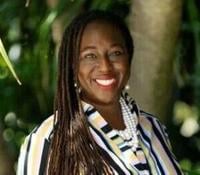In a bombshell revelation, singer Cassie filed a civil lawsuit against Sean “Diddy” Combs last month, claiming years of abuse, manipulation and violence. The day after the lawsuit was filed and made public, Combs settled for an undisclosed amount. It is highly likely that he did so to avoid the embarrassment of his dirty laundry being aired, with further destruction of his reputation.
Since Cassie’s revelation, four other women came forward alleging abuse by Combs – including one who was 17 at the time.
This is only the tip of the iceberg. Black women and hip-hop have, in some ways, an abusive relationship. We love the music, the beat, the clever lyrics and the fact that it is an art form that was created in the streets of our communities. We enjoy seeing our artists rise from poverty to wealth and fame. By the same token, the lyrics of many of the songs are disrespectful, and in some instances downright violent toward women.
Unfortunately, art has imitated life in many instances. One example is when Dr. Dre and members of the group NWA viciously beat and stomped female hip-hop reporter Dee Barnes in 1991. He also assaulted Michel’le, a singer who was his girlfriend, multiple times. It took several decades before Dr. Dre made a lukewarm public apology for his actions, in 2015, likely due to marketing his line “Beats by Dre” and the unpleasant double meaning that began to recirculate.
While not directly hip-hop, we think about R. Kelly and the swath of young female victims he left in his wake. At times, we as audiences have been complicit; many watched as R. Kelly married an underage Aaliyah and sort of shrugged our shoulders, hoping to find some romantic love story of a musical golden couple. The reality was far from the truth, as we learned very painfully in the documentary “Surviving R. Kelly.”
We must do better at supporting survivors who are brave enough to come forward and point the finger at hip-hop artists. There is a debate about separating the art from the artist, but just because somebody plays great beats that you love in the club does not absolve them from harming people in their personal lives.
Many during the time of R. Kelly’s allegations, which resulted in his being convicted and sent to prison, blamed the targets of his abuse by calling them “loose, fast girls, who knew what they were doing.” Many of these girls, like Cassie, were young and hoping to make a name in the industry. However, they ended up finding themselves in a situation where they were exploited, along with their dreams, safety and self-esteem being shattered.
The remaining victims that have come forward against Combs did so under the Adult Survivors Act in New York, which recently expired. Normally, a crime has a set amount of time in which a person can be arrested and charges brought, with the exception of murder. The law was designed to extend the statute of limitations so that victims from the past can get redress now.
This is critical, because when you think of the dynamics of gender-based violence, often these acts are done against young vulnerable women. They may be too afraid at the time to speak up because of fear for their safety – fearing someone incredibly powerful who may be able to destroy their career, or just the embarrassment of not wanting everyone in your life to know that you suffered in this manner.

Melba Pearson
As time passes, a survivor may feel strong enough to come forward or be in a different place in their life where they can minimize personal harm. It is my hope that the survivors get the justice that they deserve, but we must continue to be vigilant and not condone these actions.
Our girls need to be protected. If we don’t do it, who will?
Melba Pearson is an attorney specializing in civil rights and criminal justice policy. She is the legal redress chair of the NAACP South Dade Branch. Previously, Pearson was a homicide prosecutor in Miami and deputy director of the ACLU of Florida.
This post was originally published on this site be sure to check out more of their content.









